"Measures for Hong Kong and Macao Residents to Enter Taiwan and Residence and Settlement Permits" and Taiwan's Future Vision
Author: The Man in the Room (Social Science Researcher)
According to the current regulations in Taiwan, Hong Kong and Macao residents can obtain residence permits by studying or working, but if they want to settle down, they can apply by means of family, technology, investment, entrepreneurship, or after 5 years of work after graduating from university.
With the "anti-amendment" incident in Hong Kong in 2019, more and more Hong Kong residents, especially political dissidents, choose to move to Taiwan. How to deal with these dissidents has become an issue that must be considered in Taiwan's politics.
According to a report by the Central News Agency on April 21, 2022, the Taiwan government is revising the "Measures for Hong Kong and Macao Residents to Enter Taiwan and Residency and Settlement Permits" (permission measures), "In the future, white-collar professionals from Hong Kong and Macao will stay in Taiwan for five consecutive years. If the annual monthly income reaches twice the basic salary, you can apply for settlement and obtain a ROC ID card.”
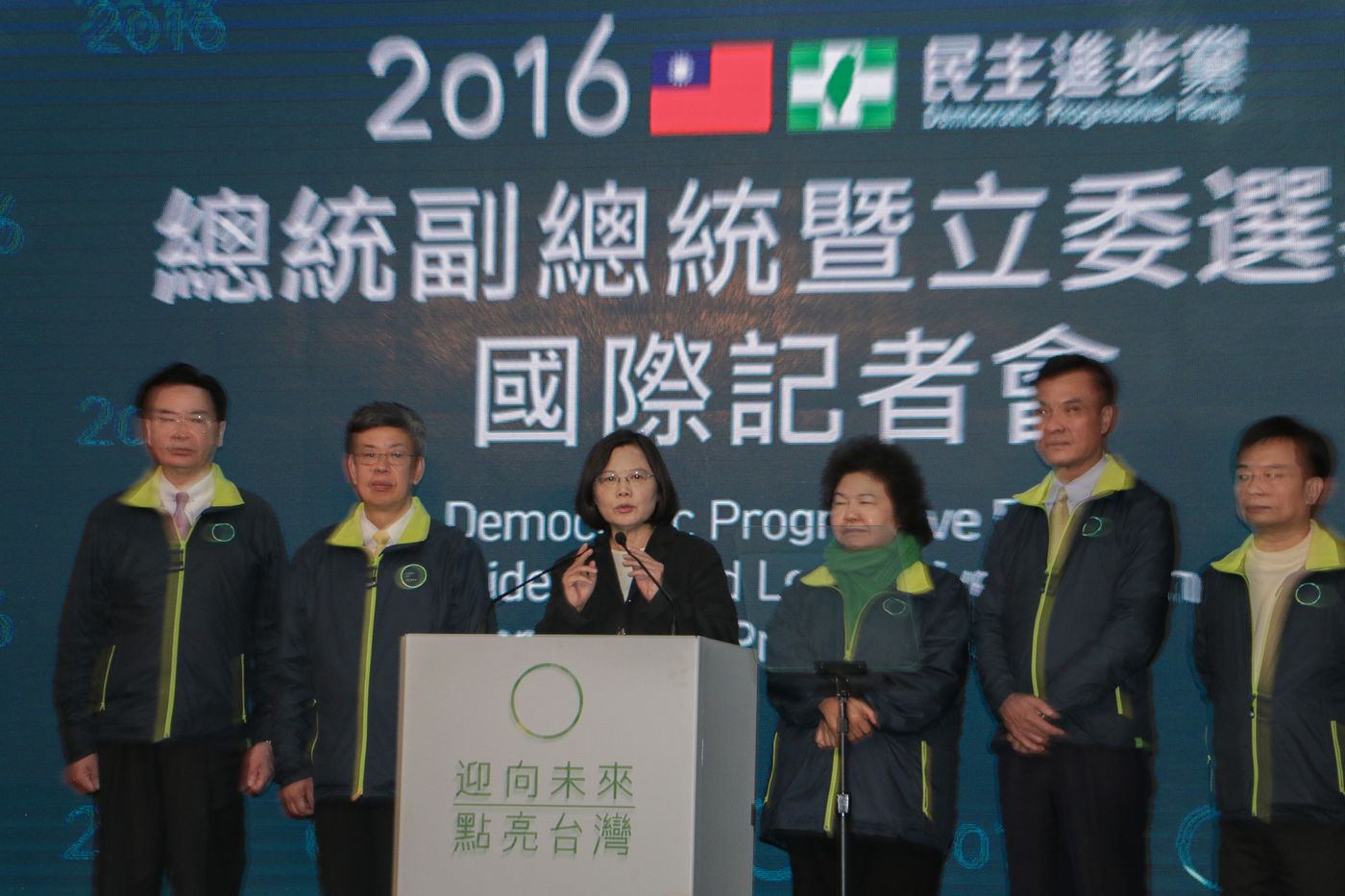
Just a few days later, legislators from the DPP and Times Power raised questions about the lack of professionals and national security, respectively, causing the MAC to decide to temporarily shelve the bill on May 1 .
Linking the "Licensing Measures" with national security is obviously directly related to the increasingly tense cross-strait relations in recent years. Therefore, does Taiwan have a moral responsibility for relief to dissidents from Hong Kong? The attitude is ambiguous and repeated, and the core issue can be attributed to the imagination of Taiwan's future - reunification or independence?
If unification is supported, it is natural to use a democratic method, and relief for dissidents is due. However, if you support independence, it is indeed a decision that needs careful consideration given the possibility of intensifying cross-strait conflicts and endangering national security.
In fact, it has been nearly 30 years since Taiwan completed its democratization in the 1990s. It is normal for the new generation and the older generation born after democratization to have different future imaginations about Taiwan. Intertwined with partisan identity, the issue of unity and independence is further complicated. So what is the real public opinion of Taiwanese society?
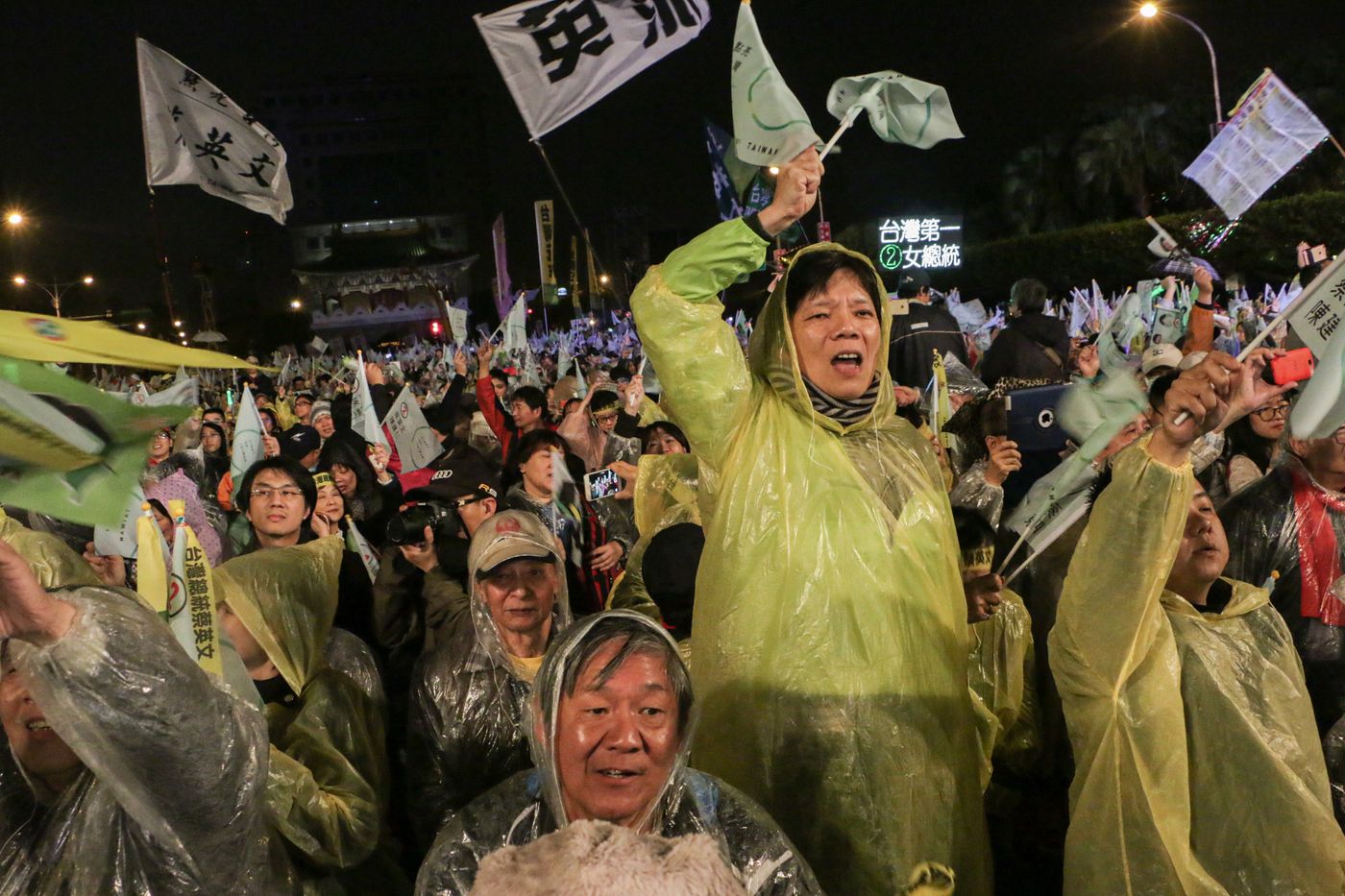
In his 2017 article "Political Identity in Taiwan's Years and Ages (1995-2015)" published by Lin Zonghong of the Institute of Sociology of the Academia Sinica, he used a total of 10,068 surveys on social changes in Taiwan from 1995 to 2015. A sample of 18+ years of age attempts to answer this question.
First of all, let’s look at how the article measures the preference for unification and independence. Respondents need to express their support for the following two questions: 1) “If Taiwan can still maintain peaceful relations with the CCP after it declares independence, then Taiwan should become a new country. (Statement on Peaceful Independence); 2) “If the conditions of the mainland and Taiwan are equal in all aspects of economy, society and politics, then the two sides of the Taiwan Strait should be unified” (Statement on Equal Reunification). The answer is assigned a value of 0 to 3, representing "very unsupported" to "very supported", respectively. It can be seen from the two figures below that the average score (1.74) supporting "peaceful independence" is slightly higher than that of "peaceful reunification" (1.52), and is generally inversely proportional to age.
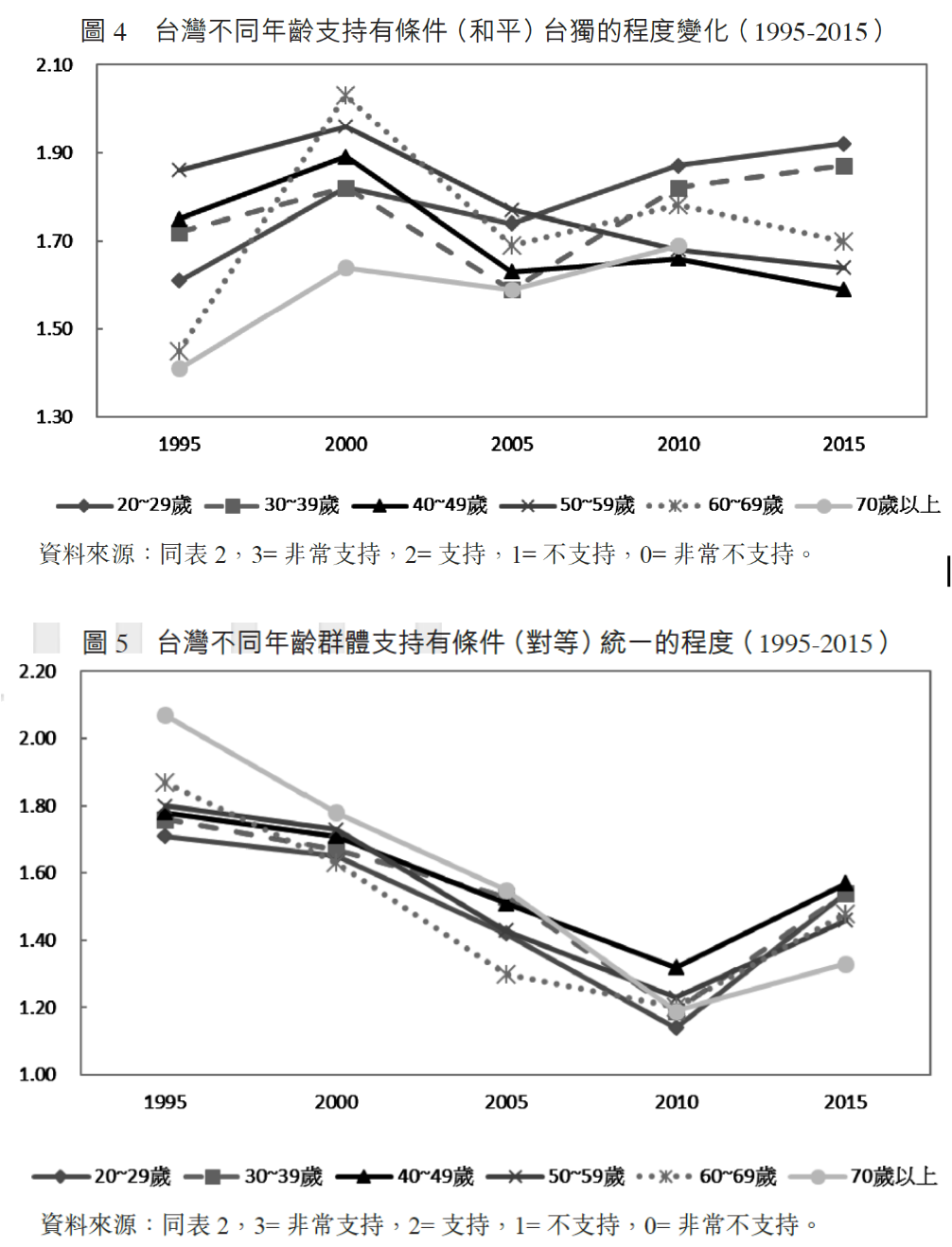
If we further consider birth generation and identity and party identity, we find that Taiwanese identity has generally improved over time, regardless of generation.
However, for the DPP, which is believed to have started with the idea of "Taiwan independence", there are obvious differences in the support of different generations. The supporters of the Green Camp are concentrated in those born in 1946-1960 who experienced authoritarian rule and those who experienced authoritarian rule in 1981-1990. For the two generations that have gone through the process of democratic transition, the younger generation, even if they have the strongest Taiwanese identity, may not be supporters of the DPP.
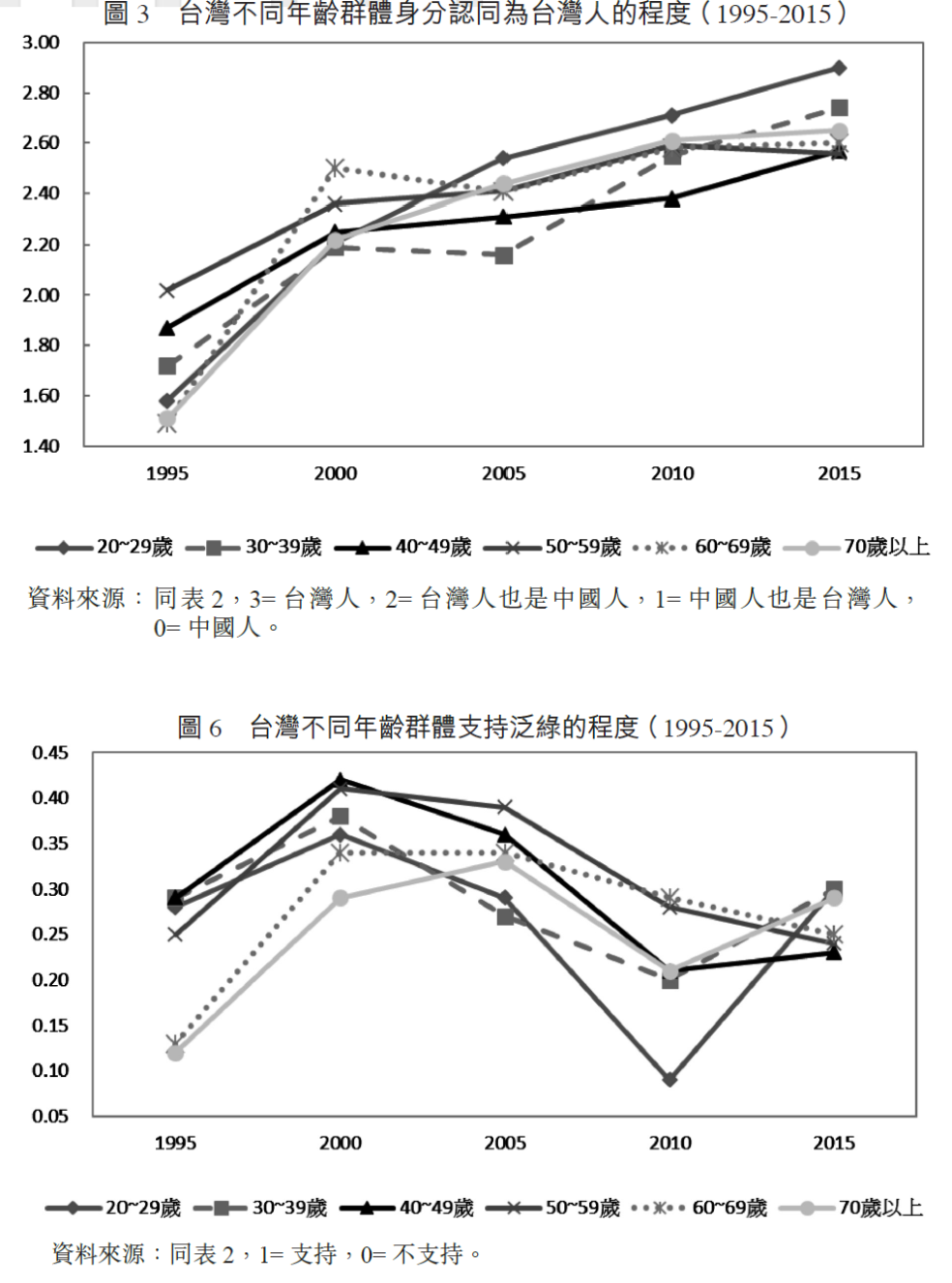
Lin Zonghong wrote in the conclusion of the article, "To sum up, the growth trend of Taiwan's identity is hardly influenced by economic rational factors, and the younger generation does have the 'natural ingredients' of Taiwan's identity" (p. 47). Acknowledging that although it affects the preference for unity and independence and party support, it is still affected by the rational choice of party performance. However, if the DPP is unfavorable in power, it may make young people tend to favor Taiwan independence or left-leaning parties, and it is unlikely that they will turn to support The current dark blue and aging Kuomintang, or the pan-blue camp of the economic right.” (p. 48)
That is to say, the power of political parties is behind national identity in terms of weight and ranking.
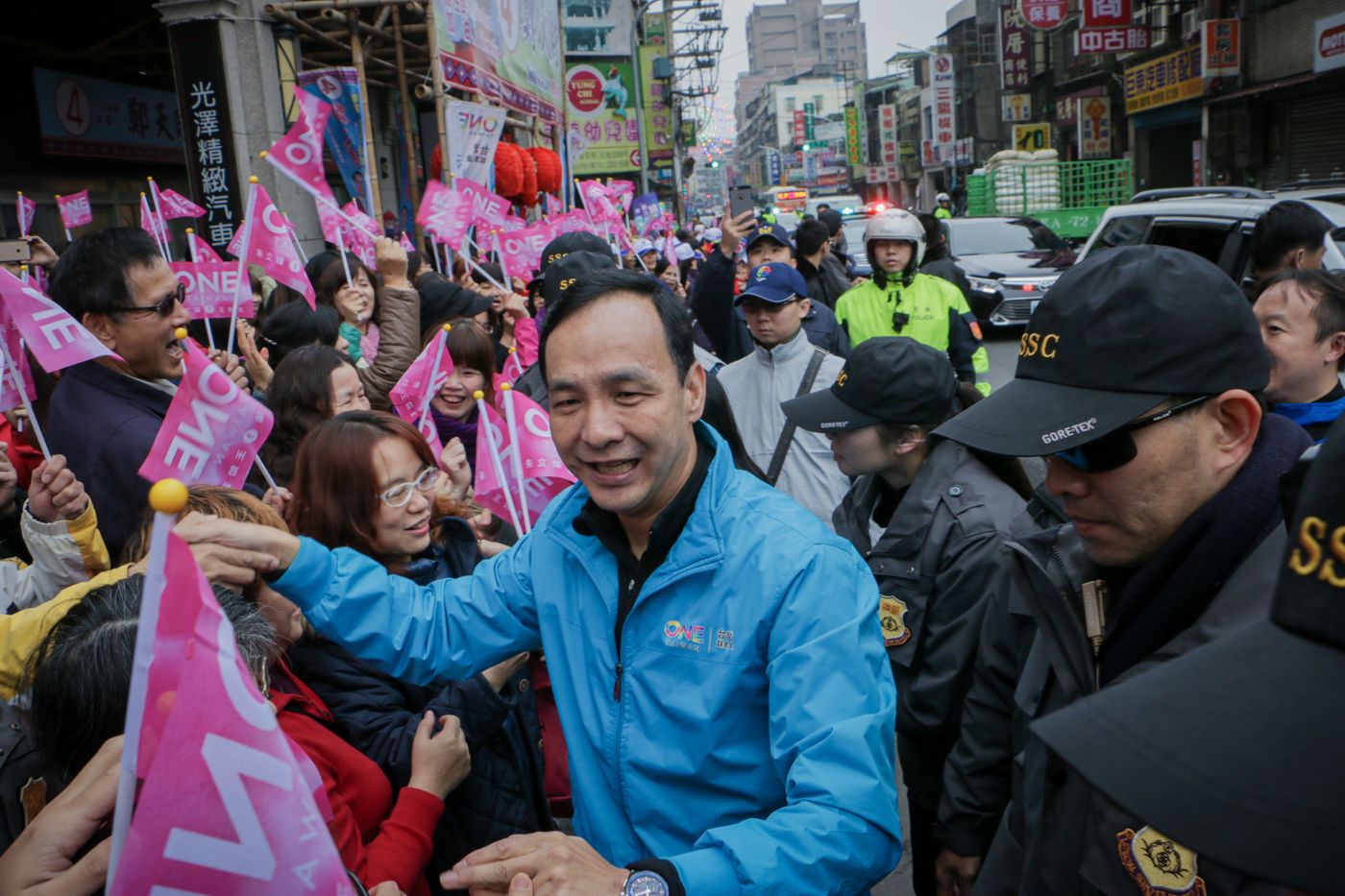
Returning to the issue of the "Licensing Measures", rationally speaking, Taiwan has entered an aging society in 2020 (the population over 65 exceeds 14% of the total population), and opening up immigration is one of the feasible solutions to aging. Immigrants from Hong Kong and Macao, if they are professionals, are ideal labor force supplements in the case of similar languages and cultures. Morally, it also adds points to Taiwan's international image.
However, the "Licensing Measures" also involve cross-strait relations, thus stimulating national identity and the future of Taiwan, the most important and most important issue in Taiwan's politics. In fact, it has triggered populism, making it difficult to discuss issues in a rational state.
It is not uncommon for the issue of reunification and independence to overlap with other issues. If the above situation continues, it will not be a good thing for the well-being and development of Taiwanese society itself.
#Number of articles: 1️⃣2️⃣1️⃣
*This article is also published in the new issue of "On the Media" in print.
✅ Patreon |👍Facebook Page |📣 Call for Papers |👂 Podcast
Like my work? Don't forget to support and clap, let me know that you are with me on the road of creation. Keep this enthusiasm together!

